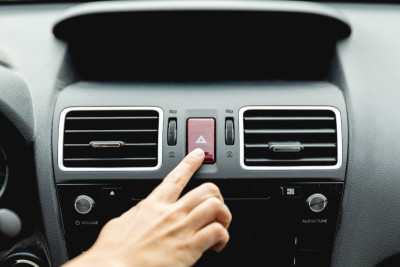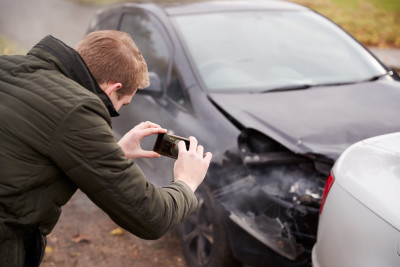We always hope to avoid fender benders or a car crash, but sometimes accidents happen. In the colder months, ice, snow and sleet can pose dangers on the road. And with the holidays, the shopping rush can increase parking lot accidents. But what do you do when that happens? If you have never experienced a collision or are a new driver, you may be caught off guard about the steps to take if that happens.
To be prepared in case of a collision, follow this guide of what to keep in mind.
Safety First
It can be hard not to panic in a stressful situation like a car wreck, but keeping calm will help you assess the situation and make your safety a priority. Call 911 immediately if you or your passengers are injured.
Depending on the severity of the accident, if you are all unharmed and your vehicle is operable, move your vehicle to the side of the road or out of the way of traffic. If gas or fluids are leaking, do not start or move the car. Leaking gas can be dangerous, so vacate the vehicle if you can and distance yourself from it.
Check out this list of possible auto damages where we would recommend you not drive your car and have it towed instead.

If it is safe to and possible, take photos with your phone to document the condition of the vehicle and the scene. Turn on your hazard lights to alert other drivers of your presence and be careful getting out of your car.
Contact the police so they can file a report. They may not need to respond if the accident was minor, and depending on their policy, they may not come if the accident is on private property or a parking lot. However, calling the police is always recommended for them to assess the situation. You may need to file the report at the police station or on their website if they cannot respond.
What to Document
When talking with the other driver(s), you’ll need to exchange information if there have been injuries or damages. Do not discuss fault and stay polite but factual. The information you typically should collect is the following:
Names and contact information of the driver and passengers
Driver’s license number and license plate number
Auto insurance carrier, policy number and their insurer’s contact number (Read more on what happens if an uninsured driver hits you.)
Vehicle make, model and color
Location of the accident
Photos of the vehicles and surrounding area

Have your license, vehicle registration and insurance information always on hand in your vehicle. If police do respond to the scene, ask for the officer’s name, badge number and how to get a copy of the report.
Contacting Your Insurance
Before any repairs are made, be sure to contact your insurance agent to let them know the accident occurred. Explain what happened and share the information you gathered. Remember to keep documentation of any medical treatment received after the collision. Talk with your agent and decide if a claim needs to be filed if there is damage to your vehicle. Check out our Claims Center to learn how to file a claim.
Feeling prepared in case of an emergency can help you stay calm if one does happen. The LearnFirst blog wants to provide you helpful resources for whatever the situation.